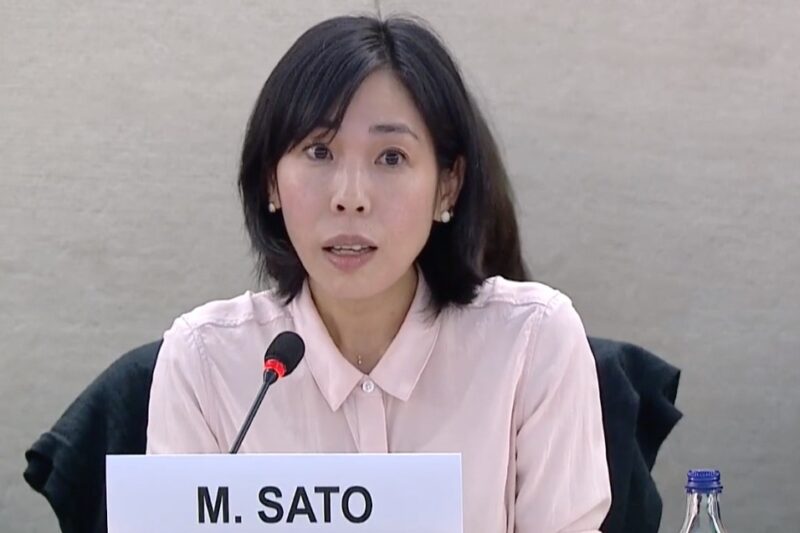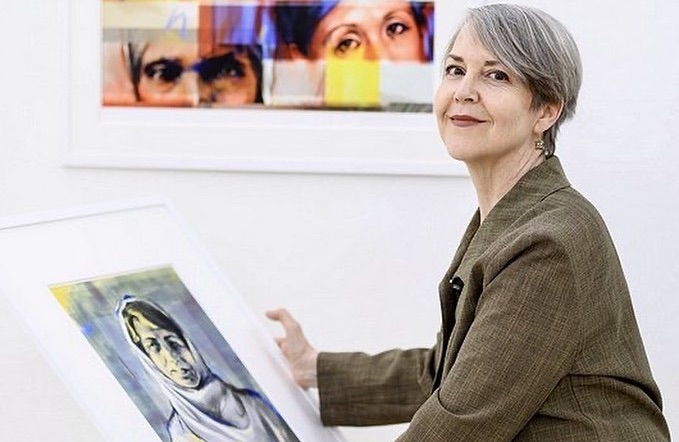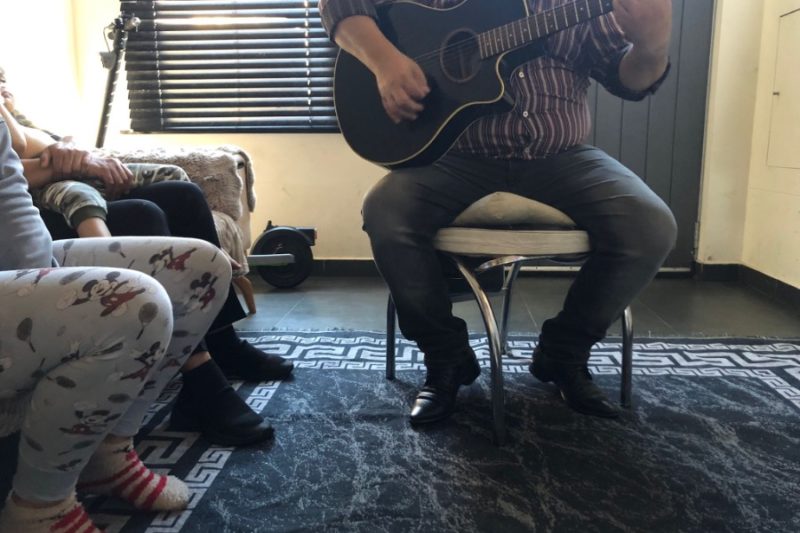Mahsa Amini International Award : « Rights are not gifts ! »
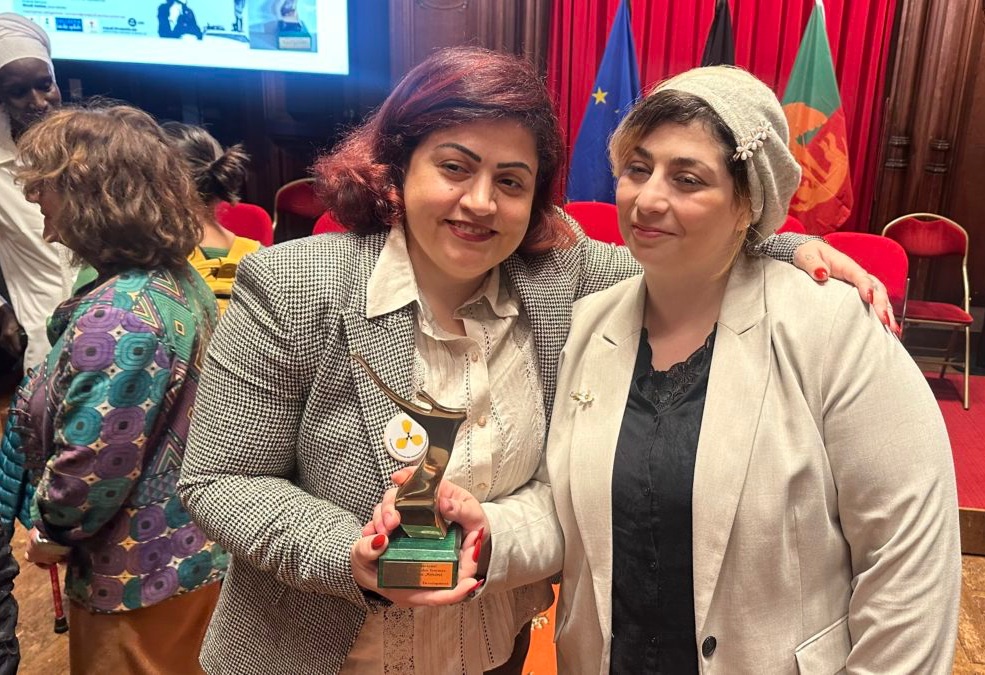
The syrian women’s organization Women Now for Development won the inaugural edition of the Mahsa Jina Amini International Award. Exclusive interview with Lubna Al Kanawati, women's rights defender and director of WNfD.
Latitudes talks to syrian feminist and women’s rights activist Lubna Al Kanawati, currently director of Women Now for Development (WNfD), a leading syrian feminist organization.
This women’s organization recently won the inaugural edition of the Mahsa Jina Amini International Award, established by the collective Laicite Yallah in Brussels. The award ceremony took place in the Gothic Hall of the Brussels City Hall, following the selection process conducted by the jury and the organization’s members.
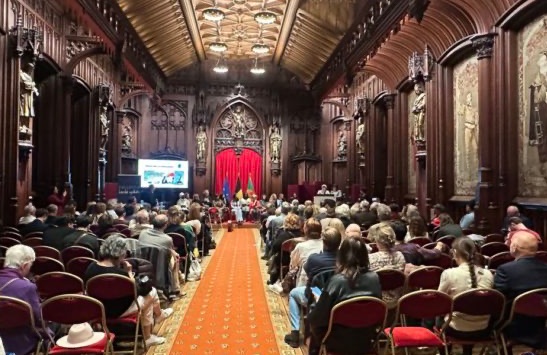
The award is named in honour of Mahsa Jina Amini, a young Kurdish Iranian woman who died in September 2022 after being detained by Iran’s ‘morality police’ for allegedly wearing an ‘improper hijab’. Her death sparked widespread protests across Iran and around the world, becoming a powerful symbol of women’s resistance against state oppression and gender-based violence.
Awarding this prize to Women Now for Development symbolizes solidarity among women’s movements across the region from Iran to Syria and Europe, united in their shared struggle for freedom, dignity, and an end to violence against women.
“A death threat from Jaish al-Islam left me with no choice.”
Lubna Al Kanawati speaks with a quiet intensity, the kind of strength that comes from surviving what most of us can barely imagine. Her story begins in August 2014, the month she was forced to flee Syria.
Sitting across from me, she explains: “A death threat from Jaish al-Islam left me with no choice.” Her voice steady but edged with memory, she recalls: “They were one of the most radical armed opposition groups in the Damascus suburbs. They had already kidnapped four of my friends, all human rights defenders, the year before. I knew what they were capable of.”
Urgent needs of women
Her activism began during the early days of the syrian revolution, where she joined peaceful protests demanding justice and dignity. As the conflict deepened, Lubna recognized the urgent needs of women trapped in war zones and took on the challenging role of delivering humanitarian aid in besieged areas.
Two representatives of Women Now for Development, which is based in France, attended the event. Founded in 2012 by the syrian woman writer and journalist-in-exile, the organization has carried out significant work focused on women’s empowerment, justice, and amplifying women’s voices. It also engages in documenting crimes and violence against women to support future accountability processes and ensure justice for survivors.
« I had already lived through bombings, chemical attacks, repeated displacements – things that change you forever. »
At that time, explains Lubna, she was wanted by multiple branches of Assad’s security apparatus. “Inside Syria, I had no safe place left to go. By then, I had already lived through bombings, chemical attacks, repeated displacements – things that change you forever. But even through all that, I never wanted to leave my home in Eastern Ghouta. Not until the death threat arrived. That was the moment everything shifted. I realised those who claimed to be our protectors were, in truth, violators.”
Her words hang in the air for a moment, the silence heavy but purposeful.
This, she continues, “is the reality women’s rights defenders face. We are not only targeted by authoritarian governments but also by radical groups and patriarchal movements within our own societies. We are attacked from all sides.”
Between exile and activism
Now in exile, Lubna Al Kanawati has turned her personal loss into a movement for change. As the founder and director of Women Now for Development, she works with women across Syria and its neighboring countries, helping them build lives of safety, dignity, and leadership in the aftermath of war.
« Syrian women are not victims. They are leaders.”
“In the prolonged chaos of conflict and displacement, safety is never guaranteed, especially for women,” she says. “Women continue to face kidnapping, sexual violence, sectarian killings, and unimaginable loss. They carry the heaviest burdens of war, yet they are also the ones holding families and communities together. As Batoul, one of our colleagues, often reminds us, Syrian women are not victims. They are leaders.”
Her tone shifts from sorrow to resolve. “Through these harsh realities, we have learned in the hardest way that rights are not gifts. They are not granted. They are built, brick by brick, together.”
Building from the ground up
Women Now for Development was born from that belief. “Our organisation stands beside women who refuse to be silenced,” Lubna says. “We walk with women who organise, who teach, who support one another, who demand justice even when it seems impossible. Our work grows from their resilience. Their courage shapes everything we do.”
« Without accountability, hope is fragile. And without justice, peace will always be incomplete.”
Every programme at Women Now, she explains, is rooted in women’s lived experiences: “Education, leadership training, psychosocial support, advocacy, these are not abstract projects. They come from the priorities women identify themselves with justice and accountability guide us. We document violations, we raise women’s voices, and we challenge impunity. Because without accountability, hope is fragile. And without justice, peace will always be incomplete.”
Her conviction feels both political and deeply personal. “This isn’t theoretical work,” she insists. “It’s daily solidarity. It’s standing beside women who face danger and refusing to let their demands go unheard. Rights must be practiced, defended, and fought for every single day.”
The road ahead
She doesn’t sugarcoat the challenges. “Syria is not safe, and the road ahead is long. But we also know this: women cannot and do not wait. Even amid violence and threats, they organize. They protect one another. They lead change.”
Women Now for Development’s mission, she says, is to ensure that women’s courage and voices shape the future of Syria. “In our extraordinary team, women and men alike dedicate themselves to justice and human rights even while facing crisis or displacement. They never surrender. Their courage connects with the courage of women everywhere, raising voices for dignity, for freedom, for a future built with their own hands.”
« To all women who lost their lives defending rights, this prize is for you. »
Then she pauses, and her words soften into a dedication: “To women in Syria, Sudan, Palestine, Yemen, Afghanistan, Iran, to all women living under systems that trade away our lives and rights for short-term political or economic gain, may peace and freedom come.
She also said: “To all women who lost their lives defending rights, this prize is for you. To my colleagues at Women Now, and to all my Syrian activist friends, this prize is for you.”
She smiles faintly, her eyes bright with both grief and pride. “I want to honour every syrian woman, from every city and every corner of our land: Damascus, Homs, Aleppo, Raqqa, Daraa… every place where women continue to resist and rebuild.”
And then she turns to the most personal of dedications. “To my son, Kais, who bore my absence with love and patience, who grew up sharing me with my activism, I know you will grow to be a feminist. This prize is for you.”
« These dedications are not memories, they are our living promise. »
As our conversation draws to a close, her final words feel less like a farewell and more like a vow.
“These dedications are not memories,” she says quietly. “They are our living promise. Our struggle for justice, freedom, and dignity will not be ignored. And it will never be silenced.”
Throughout her career, she has been a tireless advocate against human rights abuses by the Assad regime, documenting violations, supporting survivors, and promoting accountability for chemical weapons attacks on civilians. She also works to combat gender-based violence and ensure that women’s voices are central to Syria’s peace and reconstruction efforts.
Lubna’s courage and leadership continue to inspire syrian women striving for equality, justice, and lasting peace.


